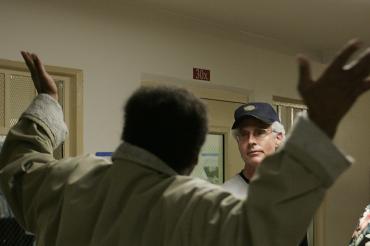De-escalation of agitated people is a trained skill and a team effort: U of T expert

Published: October 24, 2017
It’s normal to want to run the other way when you come across somebody who is agitated, aggressive and yelling. But Dr. Brittany Poynter, an assistant professor in the department of psychiatry at the University of Toronto’s Faculty of Medicine, says there are strategies to deal with an agitated person.
Poynter, an emergency department psychiatrist at the Centre for Addiction and Mental Health (CAMH), says de-escalation is a skill that requires training and experience. It takes a team of people working together to make sure everyone is safe, she writes in this week’s edition of Doctors’ Notes, the Toronto Star’s weekly column created by medical experts from the University of Toronto.
“I don’t recommend anyone try it alone.”
When someone’s behaving in an aggressive or threatening way during a mental health or emotional crisis, “they’re probably scared," she writes. "Their actions are driven by fear, rather than a desire to harm anyone.”
She also advises family members who face an escalating situation with a loved one experiencing psychosis to call 911 sooner rather than later.
Read the full Doctors’ Notes column



